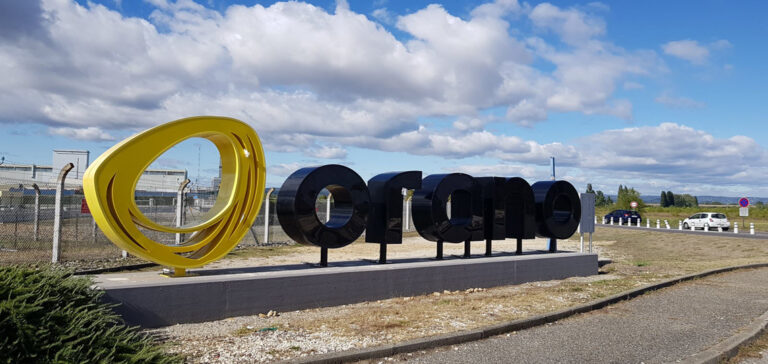Orano invests 1.7 billion euros to increase uranium enrichment capacity at its Tricastin plant (southern France). This is part of a drive to increase its energy independence and reduce its dependence on Russia.
The project involves increasing production capacity by more than 30% at the Georges-Besse 2 plant, inaugurated in 2011. This plant, located in Europe’s largest nuclear complex on the border between Drôme and Vaucluse, is of strategic importance.
The Geopolitics of Nuclear Energy
Russia’s invasion of Ukraine has highlighted the vulnerability of nations heavily dependent on Russia. This situation has prompted Orano to take steps to reduce this dependence and strengthen Western energy sovereignty.
There are currently only four uranium enrichment players in the world: Russia’s Rosatom (43%), the world’s leading exporter, the European group Urenco (31%), China’s CNNC, and Orano (12%). Dependence on a small number of international players creates vulnerabilities in uranium supply, and the uncertain geopolitical context has made this issue more worrying than ever.
Implications for France and the West
In the current geopolitical context, increasing uranium enrichment capacity is intended to strengthen energy sovereignty in France and other Western countries. Dependence on major international uranium players is perceived as a risk to energy security.
Claude Imauven, President of Orano, emphasized, “With this capacity extension, the uranium produced at the Orano Tricastin site will supply the equivalent of 120 million homes a year with low-carbon energy.” This initiative has the potential to make a significant contribution to the transition to more sustainable energy sources. Increased production of enriched uranium will contribute not only to France’s energy supply, but also to the global effort in favor of low-carbon energy, a key element in the fight against climate change.
The Complexities of Uranium Enrichment
Uranium enrichment is a crucial stage in the nuclear energy supply chain. This is the process that increases the concentration of fissile uranium, making nuclear fuel usable in reactors. Uranium enrichment capabilities are an essential component of our ability to produce nuclear energy.
However, uranium enrichment is also a complex and highly regulated field. This is because of its implications for nuclear security and non-proliferation. It is essential that uranium enrichment facilities comply with strict safety and control standards.
The benefits of diversification
Orano’s uranium enrichment initiative reflects the need for nations to diversify their sources of uranium supply. Dependence on a small number of players can lead to vulnerability in the event of supply disruptions.
By investing in increased enrichment capacity, France is showing the way for other Western countries facing similar challenges. This approach contributes to strengthening the nation’s energy security. What’s more, it helps promote the transition to cleaner energy.
An informed decision
Orano’s decision to invest heavily in increasing its uranium enrichment capacity is a direct response to current geopolitical and energy challenges. It is part of an approach aimed at guaranteeing a sustainable low-carbon energy source while reducing dependence on major international players.
This initiative contributes to France’s energy sovereignty and promotes the transition to cleaner energy sources. It reflects the need for nations to diversify their sources of uranium supply to reduce the risks associated with dependence on a small number of players. By investing in the future of nuclear energy, Orano shows how strategic actions can strengthen energy security and combat climate change.
Final Analysis
Orano’s massive investment in increased uranium enrichment capacity is much more than a simple business decision. It’s an example of how geopolitics and energy are closely linked. In an unstable world, where energy security is essential, diversification of uranium supply sources is an imperative. Orano’s initiative shows the way for other nations, demonstrating how to invest in low-carbon energy sources while strengthening energy sovereignty.
Beyond the billions of euros invested, it’s the long-term vision that’s important. Orano is committed to this approach and is sending out a strong message. Nuclear power can play a crucial role in the transition to cleaner, more sustainable energy. Furthermore, energy security and the fight against climate change are global priorities. What’s more, actions of this kind are essential steps towards achieving them.
Ultimately, Orano’s investment is a good example. Indeed, the energy sector can meet today’s challenges while contributing to a brighter future. It shows that, in the face of complex global challenges, bold decisions are needed. And they can shape tomorrow’s world in a positive way.






















